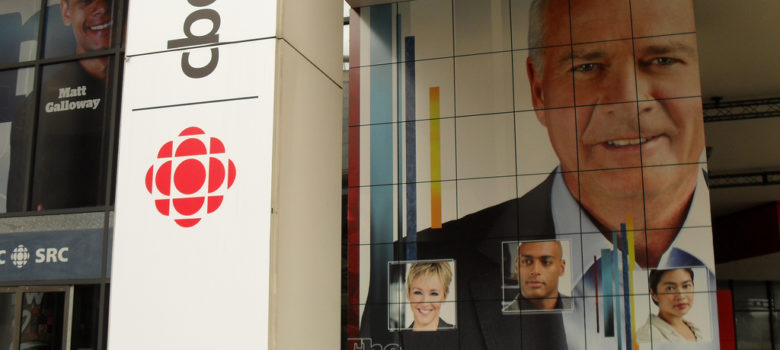The Bell coalition website blocking proposal, dubbed FairPlay, clearly started with Bell: it first raised the issue in September at a House of Commons committee hearing, obtained the legal opinion to support the application (it is addressed to Bell), and used a closely allied law firm to draft the application. The coalition follows a familiar narrative, much like the “Fair for Canada” campaign in 2013 that was designed to convince Canadians that keeping foreign competitors such as Verizon out of the country was in their best interest.
The coalition features representation from several sectors (as noted yesterday, the leadership of telecom companies is an outlier when compared with other countries), but one participant in particular stands out. The CBC, Canada’s public broadcaster, has said its decision to join the coalition was a question of principle, reflecting its opposition to piracy. Yet the issue is not opposition to piracy, but rather whether the proposed coalition solution that includes blocking without court orders, violation of net neutrality principles, risks of over-blocking, and vulnerability on human rights norms run counter to other principles that ought to be held by a public broadcaster.
Indeed, far from supporting blocking, public broadcasters around the world have worked to give the public tools to circumvent blocking. For example, last year a group of international broadcasters – the British Broadcasting Corporation (BBC) (UK), Broadcasting Board of Governors (BBG) (US), Deutsche Welle (DW) (German Public International Broadcaster), France Medias Monde (FMM) (French Public Radio Broadcaster) – co-sponsored the Bypass Censorship website. These broadcasters recognized the problematic trend of blocking international news websites, social media, overall access to free and open Internet. To counter this, Bypass Censorship provides information on how to access and download tools to circumvent blocking efforts. Some of those tools (such as VPNs) could be targeted by the Bell coalition site blocking plan.
Further, public broadcasters around the world are often vocal in support of net neutrality, media freedom, and public access. For example, the European Broadcasters Union (the CBC is an associate member) has been a staunch advocate of net neutrality and open Internet, arguing for the need to give “audiences unfettered, non-discriminatory and transparent access to online content.” The BBC has emphasized the dangers of site blocking and worked to establish proxies and other tools to circumvent blocking efforts.
Moreover, given the significant public investment in the CBC, one of the goals of the national public broadcaster is to make its content as widely available to Canadians as possible. While opposition to unauthorized streaming sites is unsurprising, it is worth noting that the coalition is not trying to take down such sites as Canada already has legal tools to seek removal of unauthorized sites hosted in the country. Further, it is not trying to stop non-Canadians from accessing its content through unauthorized streaming sites. Rather, it is effectively trying to block Canadians from watching the unauthorized streams of CBC content that is typically freely available to the public on a number of platforms. The CBC might prefer that viewers use authorized services, but supporting blocking is a counter-intuitive position for a public broadcaster as it tries to stop Canadians from viewing the content they paid for through their tax dollars.
The CBC may justify its support for site blocking as a matter of principle, but in doing so it jettisoned other important principles that Canadians might have expected their public broadcaster to support. By adopting a position that it would prioritize blocking Canadians who try to access its programming, the CBC is outlier when compared to other public broadcasters who have worked to overcome blocking mandates around the world.








I’m about as sick of CBC as I am of bell actually, hate them both but bell slightly more.
Could you expand on “block Canadians from watching the unauthorized streams of CBC content that is typically freely available to the public on a number of platforms”?
I see four streams on (an unmodified) kodi, sould I understand that CBC wants to ban the therr that they didn’t write?
I meant “should I understand that CBC wants to ban the three that they didn’t write?”
–dave (I need a spell-checker) c-b
So are they going to block YouTube?
It’s full of unauthorized Canadian network content.
And while we’re talking about Google, why don’t they collect HST on their Canadian advertising … all that money lost …
Youtube is a pirate site.
Everyone’s a filthy pirate, according to George.
It’s simple. 85% of the content on youtube is pirated. Meaning posted there without the rights holder’s permission. It’s a simple fact.
It’s unlikely that they’d block YouTube as it has a take down process. Rights holders can tell YouTube to take down unauthorized videos.
Google, Netflix, etc do not collect HST because they are non-resident businesses and are not subject to Canadian tax laws. In essence anyone buying advertising on Google is cross border shopping. However, that does not mean the government is losing HST on ads bought on Google.
Tax law requires businesses, non-profits, and individuals to self-assess HST on these type of purchases. For example, if a Ontario business paid Google $1,000 for ads it is required to pay the government $130 in HST. Most businesses comply with the law; individuals not so much.
All cross-border shopping today, coming across the border via Canada Post, UPS, etc., in the form of goods, has Canadian sales taxes applied to it. Only services (and not goods) are exempt, even though GST/HST are goods and services taxes, not just goods taxes.
The only reason the tax is not applied is because Trudeau is pandering to the 905 crowd in a way as abject as Harper with his GST rate reductions, against all economic advice and wisdom, which have cost the Canadian government hundreds of billions and which no government now dares restore.
Pingback: Law and Media Round Up – 26 March 2018 – CCTV Installer Near Mear